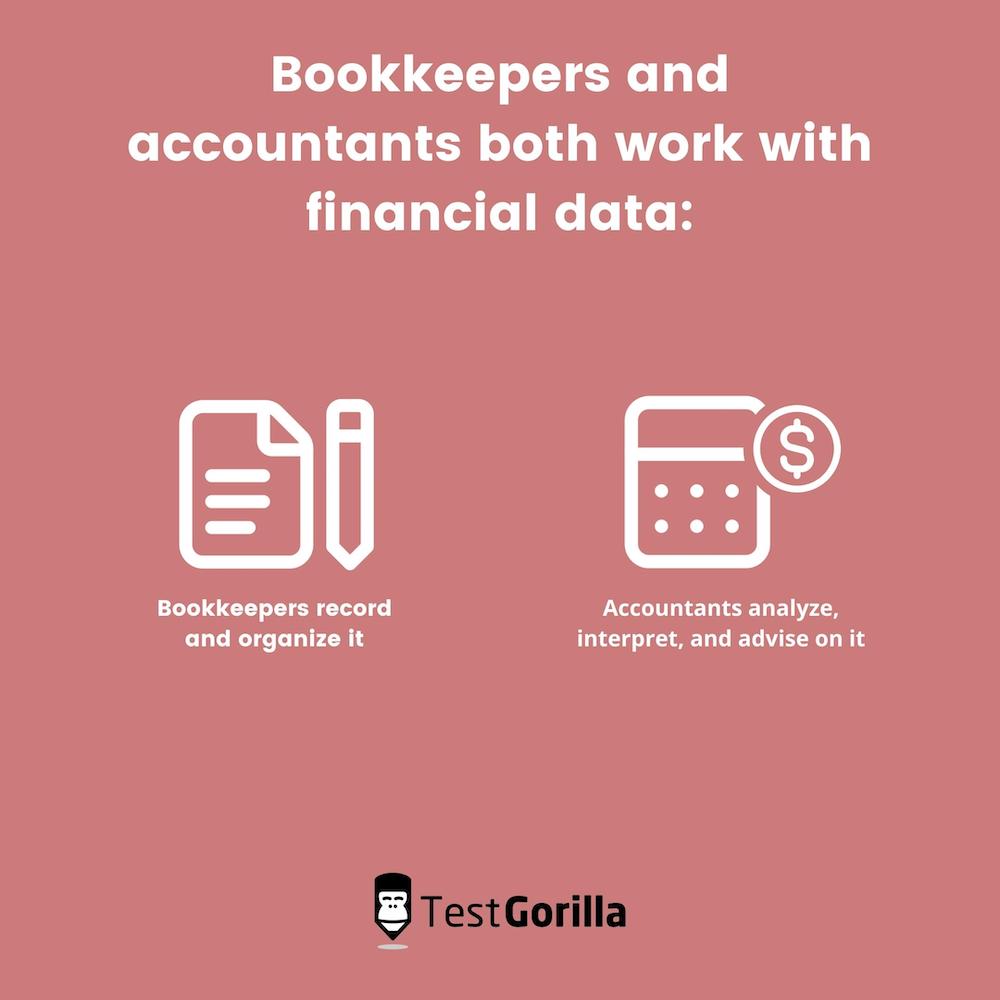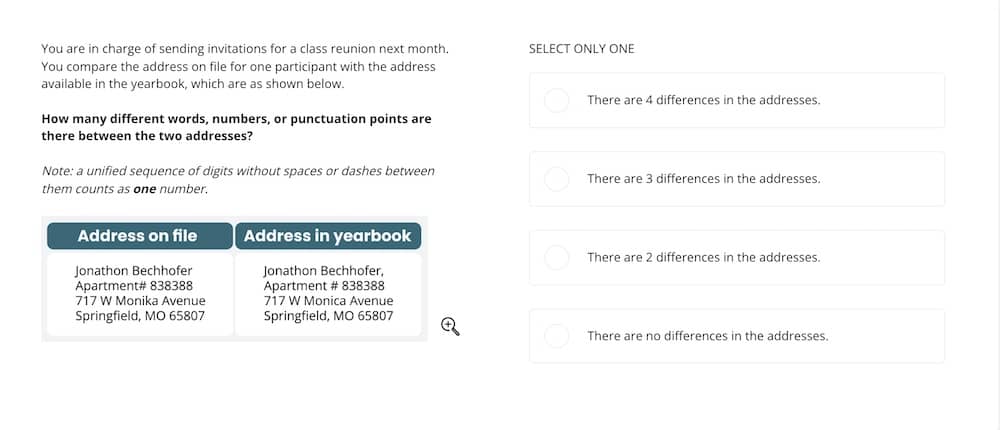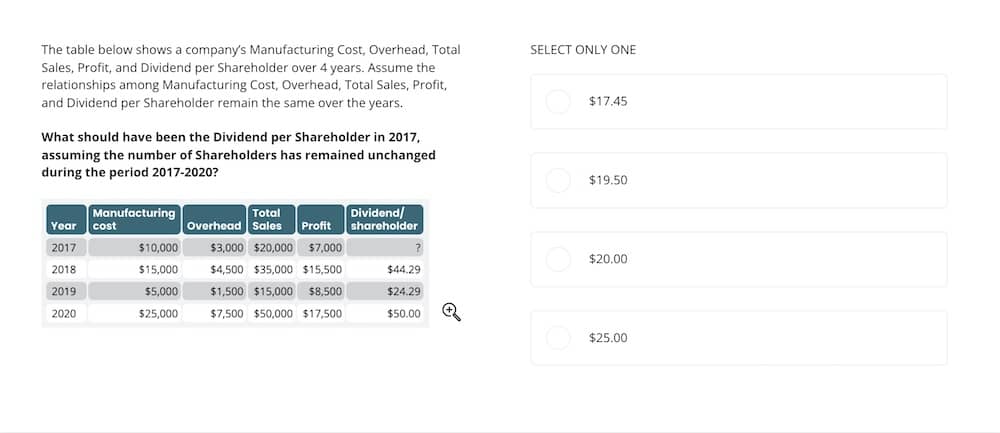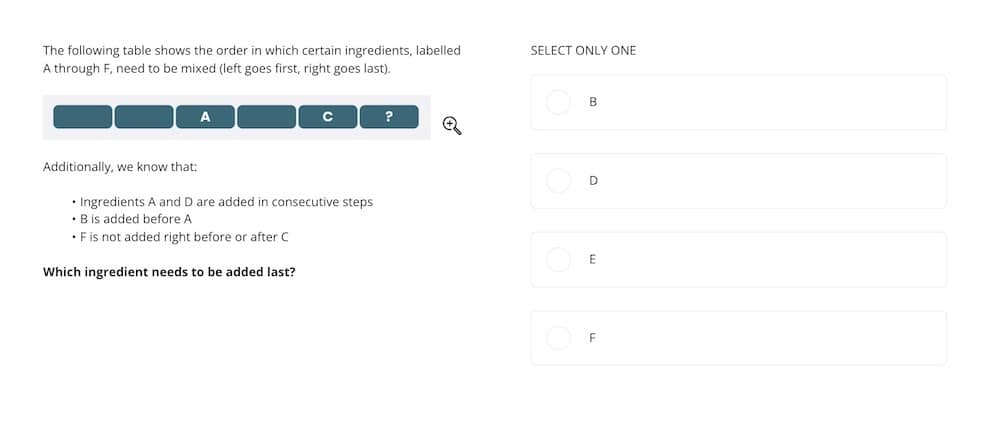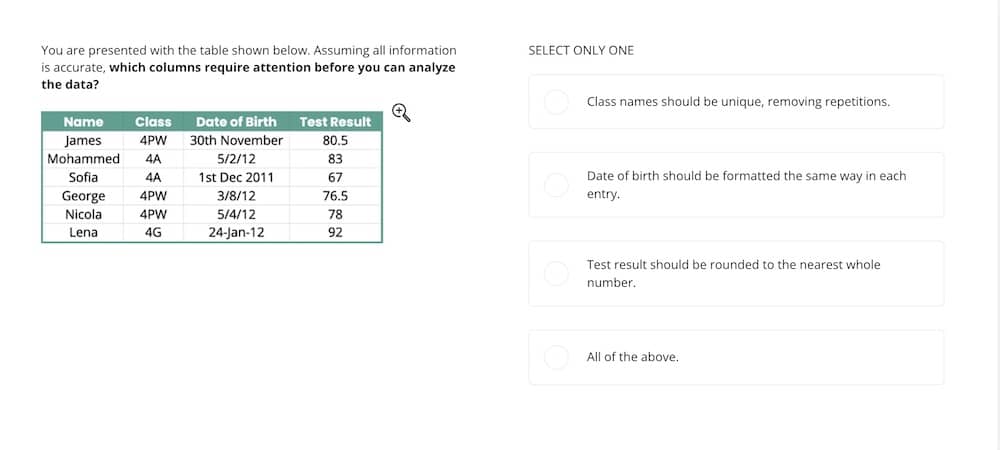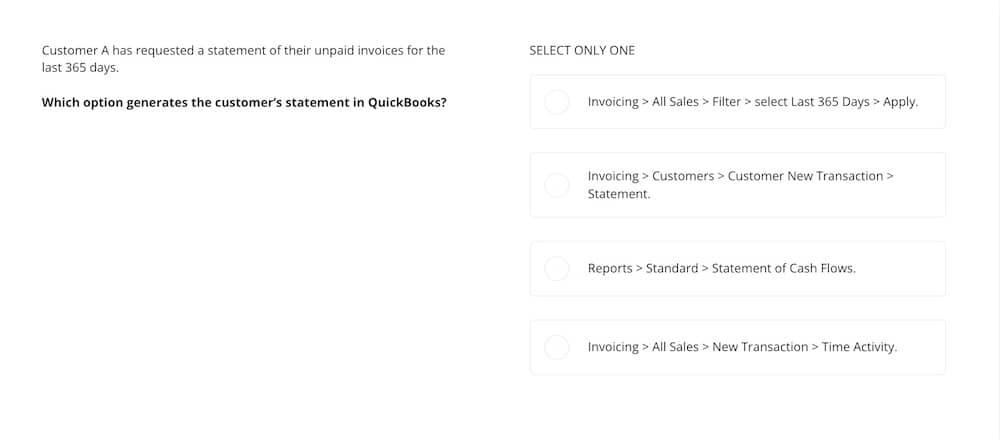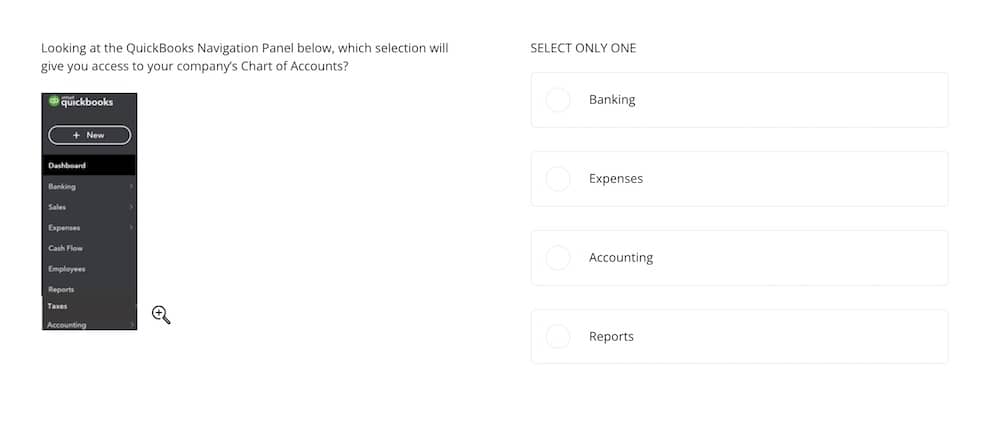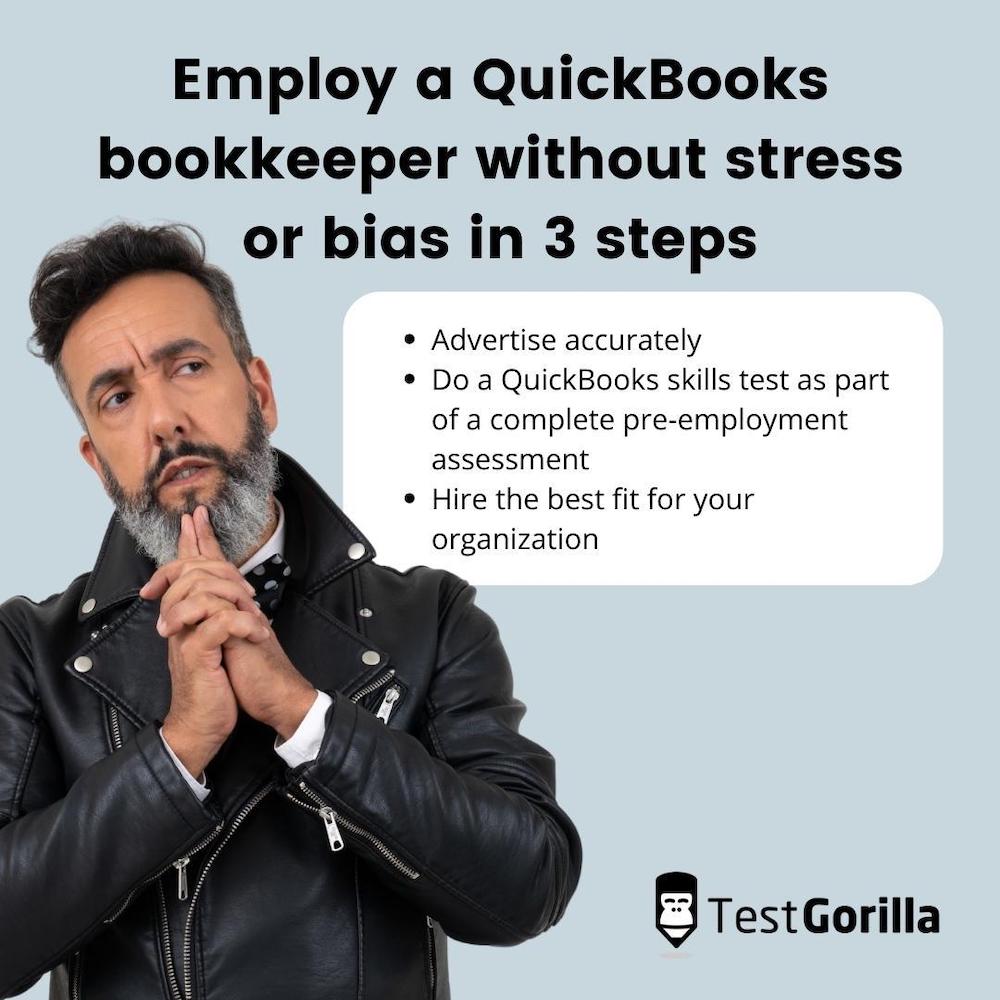Are you looking to hire a bookkeeper? QuickBooks is the most popular accounting software used by small and medium-sized businesses, so assessing candidates’ skills with this software could be a crucial step towards hiring a top bookkeeper.
If your company or organization uses QuickBooks or any specific accounting software, it will be important to attract, interview, and eventually hire candidates who know how to use it. This blog post outlines an easy way to go about this process and provides information about hiring a QuickBooks bookkeeper specifically.
What is QuickBooks?
Developed and marketed by Intuit, an American business, Quickbooks is a software package designed for accounting and geared towards small and medium-sized businesses. It has dominated this market since its release and is known for its suite of products.
QuickBooks Online
QuickBooks Online or QBO is a cloud service accessible through a secure login via a web browser. You can access it from any device – smartphone, tablet, Mac, or PC – and there are five plans to choose from at different prices:
Self-Employed: For independent contractors
Simple Start: For new businesses
Essentials: For service-based businesses
Plus: For product-based businesses
Advanced: For growing businesses
In 2016, QuickBooks Online reported over 1.5 million paid subscribers. It’s possibly the most popular accounting software out there. So chances are, if you’re looking for a bookkeeper, many of your candidates will already be very familiar with it.
QuickBooks training and certification
If you don’t want to hire a QuickBooks bookkeeper, upskilling an existing member of your team who already has a bookkeeping skillset or similar is a great option.
QuickBooks offers a training program that teaches users how to use the software. This could be useful for someone who is unfamiliar with it or who knows the basics but wants to become comprehensive so they can take on bookkeeping responsibilities.
The program, of which self-paced versions can also be taken, consists of online classes that cover:
Foundational topics
Everyday transactions
Special transactions
Tips and tricks
Automation
Customization
Report generation
Accounting concepts
Payroll setup
This is a good option if you are not in a position to employ a new team member to manage the books. It will, however, save you time and money to hire somebody with pre-existing QuickBooks expertise.
The best insights on HR and recruitment, delivered to your inbox.
Biweekly updates. No spam. Unsubscribe any time.
Why is hiring a top bookkeeper important?
This being said, don’t scrimp on making sure that these skills are up to scratch in your candidate pool. Seek proof that your candidates can do the job you need them to do, and ensure this is the right job for them, too. Having a skilled and competent candidate join your team will help ensure that:
Your organization’s financial reports are accurate
Accounts payable and receivable are overseen
Business transactions are correctly recorded
Tax forms are filled out correctly and on time
Letting these aspects slide can have costly consequences. If the IRS discovers tax form errors before you do and you owe more money than was paid, you’ll be asked to pay the tax you owe plus a Failure to Pay Penalty, and interest is charged on top of penalties.
Data entry errors and omissions are amongst the most common accounting mistakes made by small businesses and, although seemingly small, these are the kind of mistakes that can seriously screw with expense and income reporting.
As you can see, hiring a good bookkeeper really is a question of saving time and money. Hiring an accountant is something businesses do for similar reasons. So, how can you know which one you need?
The difference between a bookkeeper and an accountant:
In simple terms, bookkeeping refers to the recording and organizing of financial data. Accounting is a bit more complicated and involves the analysis, interpretation, classification, and summarization of said data.
Basically, both deal with financial information and require a basic knowledge and understanding of accounting and finance, but accountants require a more specific skillset and tend to have more involvement in decision making. Bookkeepers’ work will sometimes be overseen by an accountant.
Lots of bookkeepers operate on a stand-alone basis and will put in the time as and when you need them. Accountants can work similarly depending on the size of your business and whether you hire them through a firm.
Should I hire a bookkeeper or an accountant?
Bookkeepers and accountants essentially share the same goal: To help your business thrive financially. Beyond this common aim, accountants work at a higher level whilst bookkeepers focus on the day-to-day stuff, like recording data. Your needs will depend upon the nature and size of your business, but in general:
You’ll likely need a bookkeeper if
You need assistance with daily business operations
Your business is scaling and you need more time on your hands
You might need an accountant if
You want a trusted financial advisor
You want tax help from an expert
If your business is small, it might be wise to work with a bookkeeper initially and then hire an accountant at a later date, when your company starts to grow and managing finances becomes more complex.
Skills a QuickBooks bookkeeper should have
Even if you are looking to hire a bookkeeper for their technical skills and know-how, you will still want to conduct a complete pre-employment assessment to evaluate candidates in a well-rounded way.
Before we get on to how to test for proficiency in QuickBooks, here are some other skills you should be looking for in your candidates.
Attention to detail
This will be crucial since bookkeeping responsibilities largely involve recording data accurately. A sharp eye for detail will be necessary to ensure mistakes aren’t made and details aren’t missed.
You can test for this using a cognitive ability test. TestGorilla’s ten-minute attention to detail test assesses a candidate’s ability to match and filter information, compare data for differences, and check information for consistency. Here is an example from the test:
Your candidate will be asked to compare two written sets of information for differences. The test is timed, so both precision and efficiency are assessed. Since you might be hiring a bookkeeper to save yourself time, you may want to filter out applicants who have a keen eye for detail but are slow in putting it to use.
Numerical skills
Any bookkeeper worth their salt should be able to handle numbers confidently and proficiently. Since their work will involve recording and organizing numerical data, you should test their numerical reasoning.
You can do this using another kind of cognitive ability assessment. Our ten-minute numerical reasoning test evaluates candidates’ general aptitude with numbers and their applications. Below is an example of the kinds of questions to expect:
The candidate is being asked to interpret numerical data correctly. Questions will reference different contexts and applications in order to assess candidates’ aptitude with numbers generally, which is important since bookkeepers will encounter lots of different kinds of numerical information.
Problem solving abilities
Candidates with good problem-solving skills will be able to identify problems and analyze data and information accordingly in order to make the correct decision.
This is an important skill for bookkeepers to have, and to test it a cognitive ability test is once again required. Assessing candidates’ problem-solving proficiency with TestGorilla is easy. In our ten minute problem-solving test we use questions like the following:
In these questions, applicants are asked to answer questions by correctly applying information drawn from a set of data. The speed at which candidates can do this accurately will be another indicator of related skills for bookkeeping.
Ability to work with data
This is an important one since the job role will consist largely of working with data. Being able to quickly spot and rectify errors will be an essential skill if your bookkeeper is to help steer you away from those small but costly mistakes that can happen at the data entry level.
Our working with data test is a ten-minute role-specific skills assessment that will confirm whether or not your candidate can do this with speed and accuracy. For example:
Here, those completing the test are asked to identify what needs to change before the data can be analyzed. Whether they are analyzing the data or not, entering data consistently is something a good bookkeeper should always be doing. Our test also covers a range of data formats, including graphs and charts as well as tables.
How to test for QuickBooks Online proficiency
If your company uses QuickBooks software for your finances and accounts, this will be an essential role-specific skill to test for when recruiting a bookkeeper. Our QuickBooks Online test is the best way to do exactly that.
Candidates will be assessed on their ability to navigate the software and identify which features to use in any given scenario. In this way, their situational judgment within QuickBooks is tested. All of our tests have anti-cheating features which you can choose to turn on or off, so candidates are unable to google questions or open QuickBooks themselves without you knowing.
The test also features questions about the interface. For example: below you can see a question about the QuickBooks Navigation Panel.
You can test your applicants’ knowledge of and familiarity with the software in a well-rounded manner with TestGorilla’s assessment. This really is the best way to ensure you hire somebody who is QuickBooks literate and eliminate the bias that comes with traditional recruitment methods.
Once your candidates have completed the entire assessment, you’ll be able to see a breakdown of how candidates did on their results page. From this overview, you can evaluate their performance based on the different tests they have taken and their responses to any custom questions you’ve given them. It is important to remember that you should not use the QuickBooks Online test alone to evaluate applicants.
It’s a well-known fact that job-seekers have a tendency to exaggerate on their CVs. And why wouldn’t they? If you felt like a minor exaggeration could get you that much closer to landing your dream job, you might do the same, especially since most employers will have no way of finding out about it.
The prioritization of experience over skills is outdated and is not helpful for talent or those looking to recruit it. CVs are not conducive to skills-based hiring, so pre-employment assessments are crucial in employing the right people for skill-specific roles like a QuickBooks bookkeeper.
Quick and bias-free recruitment in three steps:
Here at TestGorilla, we champion data-driven and bias-free hiring, and we’re here to make it easy and affordable. To summarise this article, below are the three easy steps we suggest you follow to find the ultimate QuickBooks bookkeeper for your business:
Advertise accurately. Specify which software you use in the job description. This will minimise the timeframe of the recruitment process by attracting applicants who have the correct specific skillset only
Conduct a QuickBooks skills test. Do this as part of a complete pre-employment skills assessment to make a balanced and bias-free evaluation of your candidates
Hire the best candidate for your organization. With the results of these hard and soft-skills tests in mind, interview and hire someone who will do the job well and is a good fit for your company’s culture
Make role specific skills tests part of your recruitment process today
For positions that require technical skills, listing qualifications and experience on a CV is simply not enough for you to ensure a top hire. Both jobs and people are multi-faceted, and an equally multi-faceted hiring approach is the only way to make sure your opening and your candidate are right for one another.
With TestGorilla, you can use specific skills tests alongside cognitive ability, personality and culture, and situational judgment tests to build a strong pre-employment skills assessment for your candidates.
Choose a plan that works for you or get started with a free plan today to start your journey with stress and bias-free skills-based hiring.
You've scrolled this far
Why not try TestGorilla for free, and see what happens when you put skills first.


